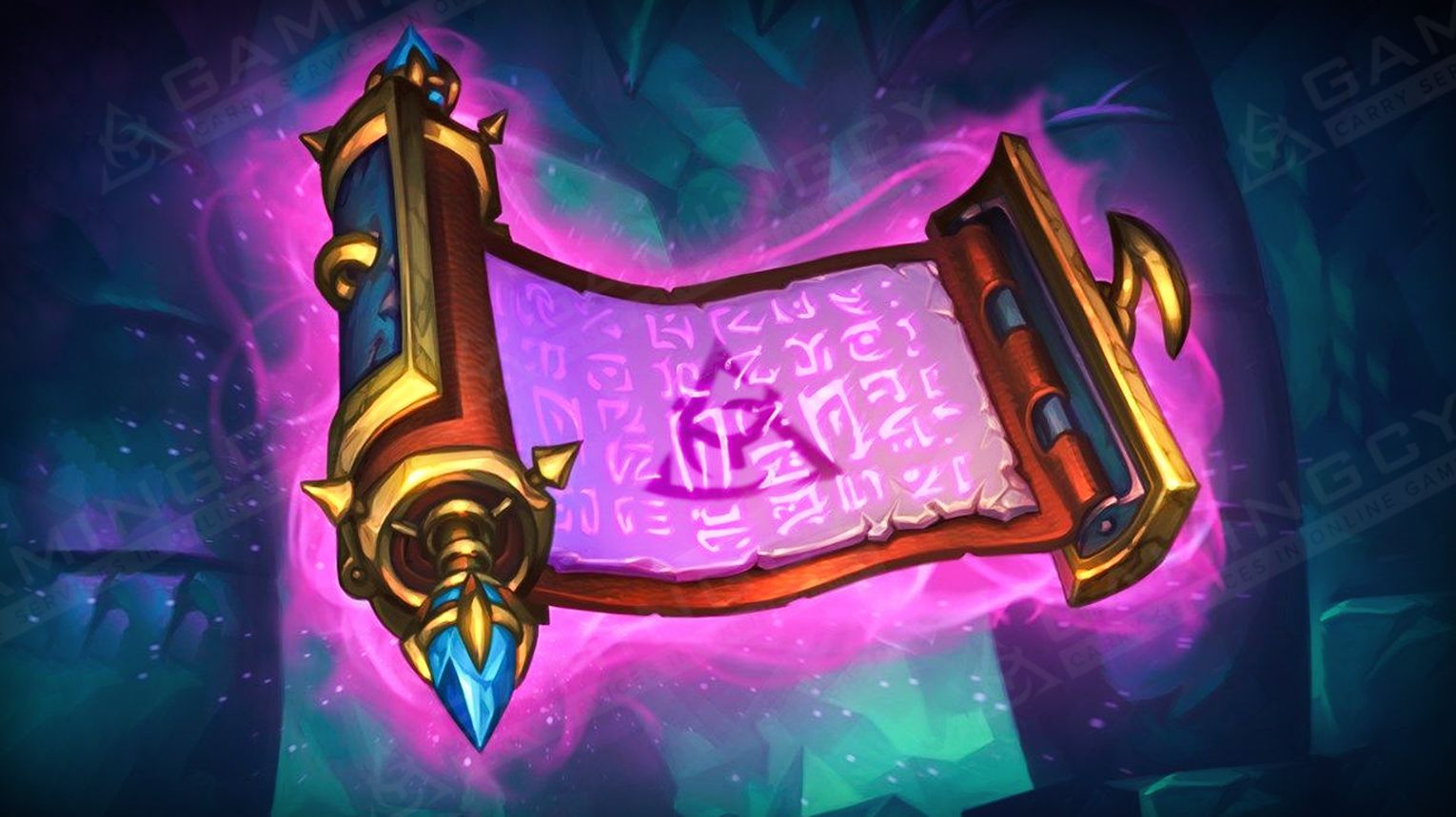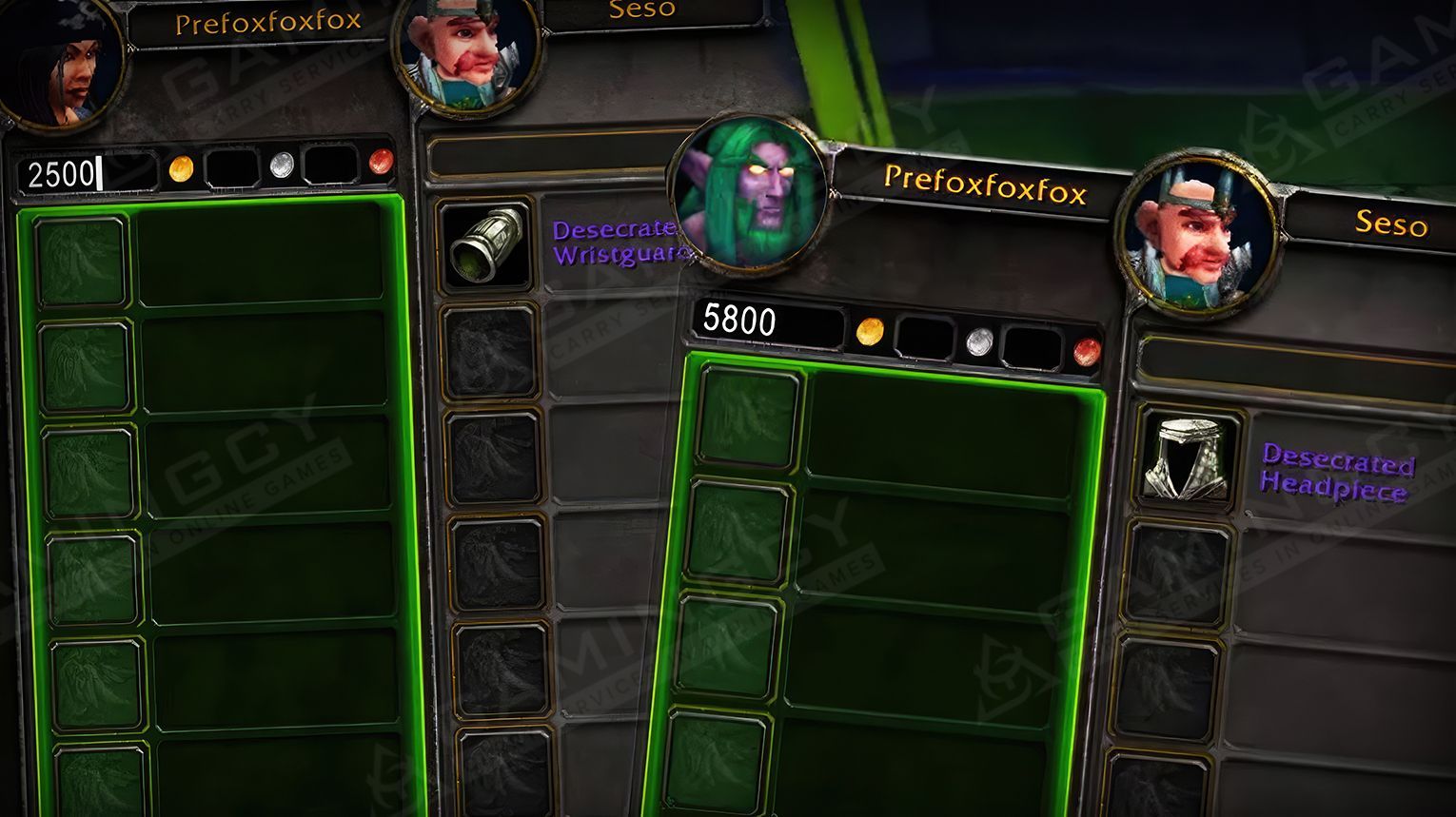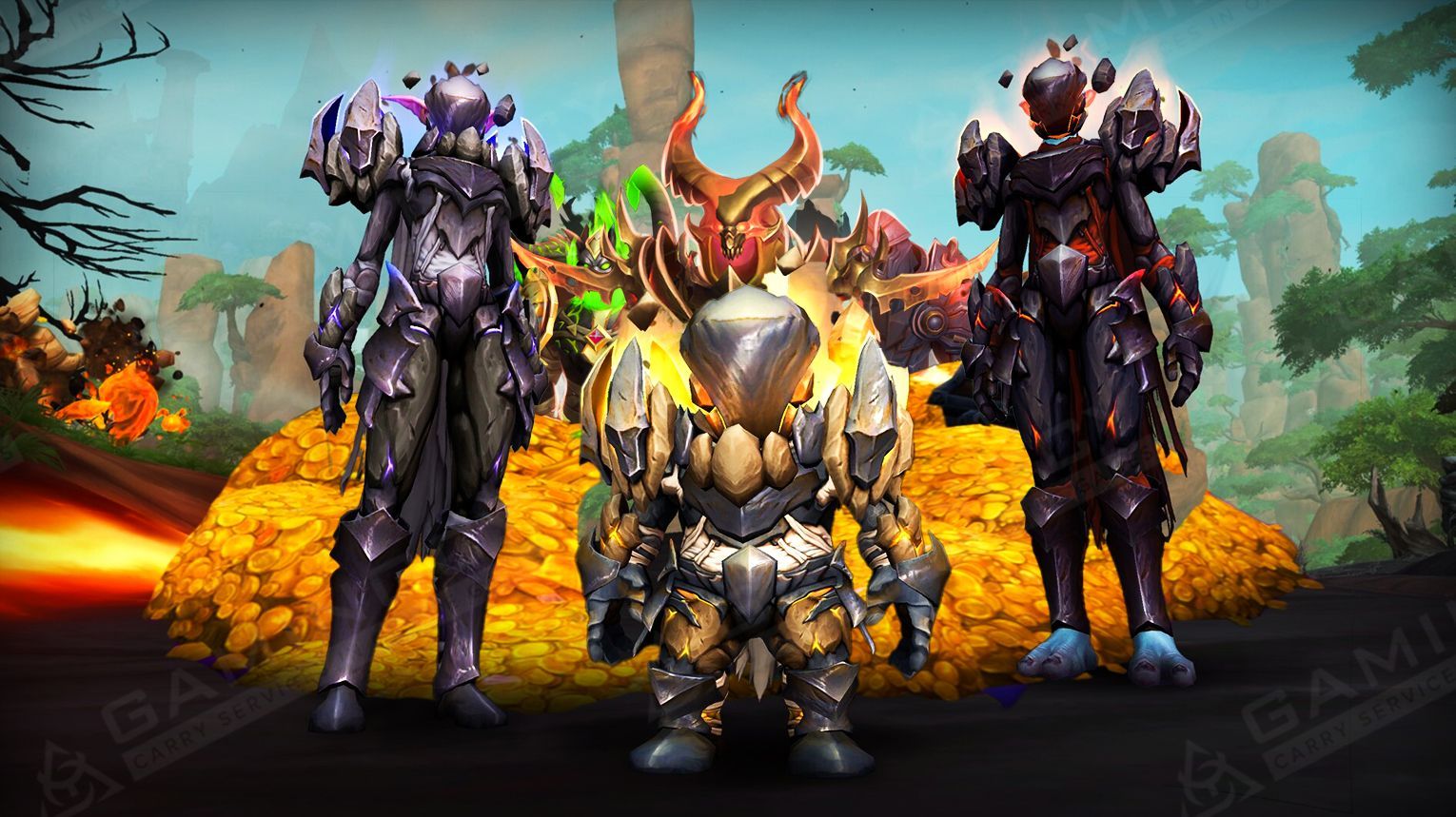For those new to World of Warcraft, the game’s expansive landscapes, intricate quests, and vast battles can be initially overwhelming. Beyond these elements, players also have to navigate a multifaceted in-game economy. Among these, the WoW GDKP system stands out as unique yet frequently misunderstood.
WoW GDKP Meaning
Understanding GDKP requires a foundational knowledge of the traditional systems it followed. Generally, WoW’s loot distribution follows patterns like DKP (Dragon Kill Points) or loot council, which reward players based on participation, performance, or the subjective choices of raid leaders.
What are GDKP Rules?

- Bidding System for Loot: When a loot item drops from a boss in a GDKP raid, raid participants can bid on it with their in-game gold. Players bid the amount they are willing to pay for the item. The highest bidder wins the drop and pays their bid amount.
- Distribution of Gold: The gold paid by the winning bidder is not kept by a single individual. Instead, it’s often collected by the raid leader or a designated player and then distributed evenly among the raid participants at the end of the raid. It means everyone benefits financially, regardless of whether they personally won any items.
- Minimum Bids: Sometimes, a minimum bid amount is set for items, especially for high-value or sought-after items.
- Bid Increments: To keep the bidding process streamlined, there might be set increments by which players can increase their bids. For example, if the current bid on an item is 1000 gold, the following offer might need to be at least 1050 gold if there’s a 50-gold increment rule.
- Transparency: To maintain trust within the raid group, bids are typically made openly in raid chat so all participants can see the bidding process. Some raid leaders might use addons or tools to help manage and track bids.
- No Sniping: To prevent last-second bids, some WoW GDKP runs employ a “no sniping” rule. If a bid is made just before the bidding is about to close, the bidding time might be extended by a few seconds to allow for counter-bids.
- Tie-breakers: In the rare event of a tie or dispute, the raid leader or designated loot distributor will make a judgment call, which could be based on factors like raid performance, attendance, or even random chance (like a dice roll).
- BoE (Bind on Equip) Items: The rules for BoE items can vary. Some raids treat them the same as other loot, while others sell them and add the gold to the pool to be split among the participants.
- Penalties for Default: If a player wins a bid but cannot pay the amount they bid, there may be penalties, ranging from forfeiting the item to being excluded from future GDKP runs with that group.
- Reserve Items: Some raids might have specific items that are “reserved,” meaning they aren’t up for public bidding. This is usually agreed upon before the raid starts.
What makes GDKP Worth Considering?

- Economic Advantage: Players benefit both from acquiring sought-after items and getting a portion of the gold. For many, it’s an optimal strategy to accumulate gold while engaging in their preferred raids.
- Equalizing Loot Opportunities: While it might seem biased toward those with more gold, WoW GDKP ensures that anyone with the necessary funds can vie for an item, regardless of their past raid experiences or affiliations.
- Strategic Play: Participating in GDKP raids becomes a strategic endeavor. Players weigh their desire for specific loot against their available gold, creating intricate in-game decisions.
Context Matters: GDKP’s Best Practice

- Stabilized Servers: On servers where the game’s economy has stabilized and players have stockpiled gold, GDKP becomes an attractive choice, ensuring lucrative bids and generous gold splits.
- PUG Raids: GDKP finds favor in Pick Up Group (PUG) raids, where players from different affiliations collaborate. It provides a neutral system, sidestepping potential biases from other distribution methods.
- Experienced Players: Players who’ve amassed a wealth of WoW gold often lean toward GDKP, as it allows them to directly pursue items without the uncertainty that accompanies other methods.
Evaluating GDKP: Points of Contention

- Economic Disparities: Some believe that GDKP might reinforce economic gaps, allowing wealthier players to consistently outbid newcomers, making it challenging for them to access high-quality items.
- Potential for Inflation: High bids for coveted items might lead to in-game inflation, driving up the prices for various goods and services.
- Shifting Away from Merit: There’s a sentiment that GDKP detracts from recognizing players based on skill and dedication, emphasizing in-game finances instead.
Final Thoughts
GDKP offers an exciting variation to the traditional loot systems in World of Warcraft. It showcases how player-driven innovations can infuse complexity and dynamism into a game, reflecting the intricate nature of human interactions.





Comments: